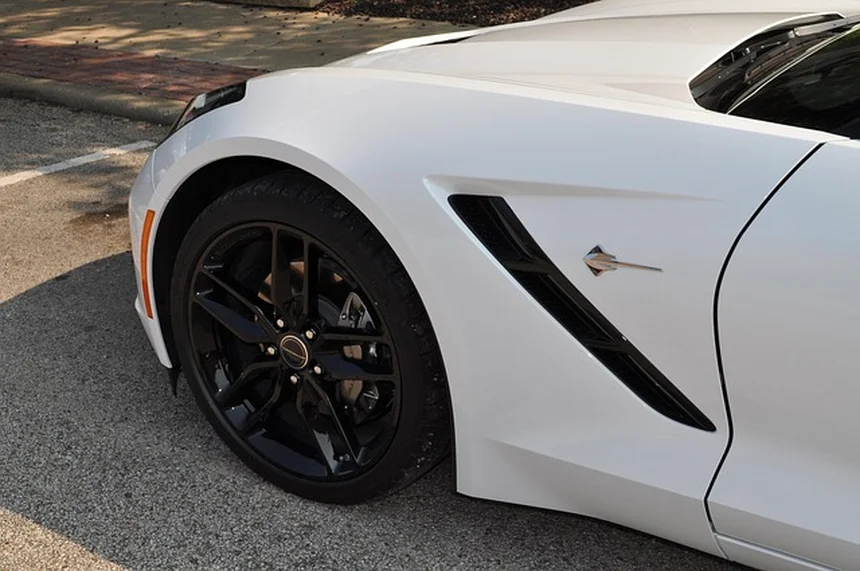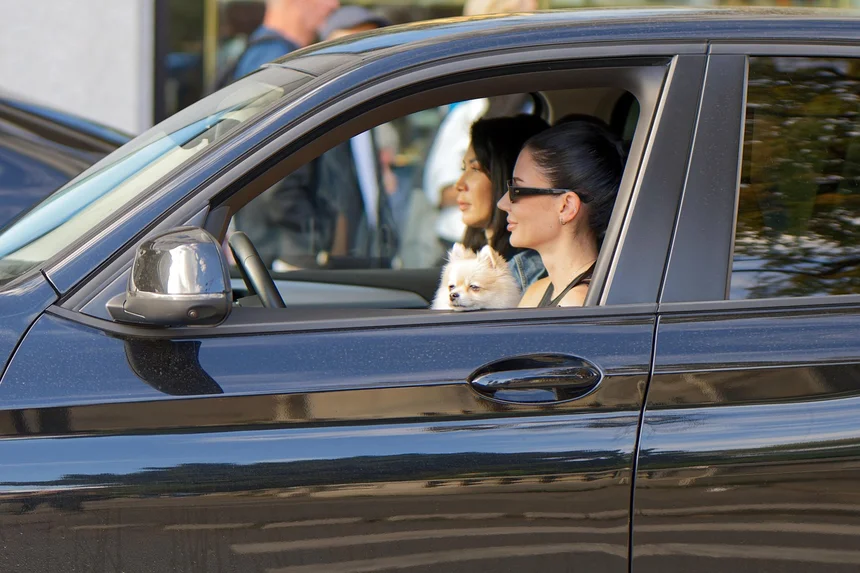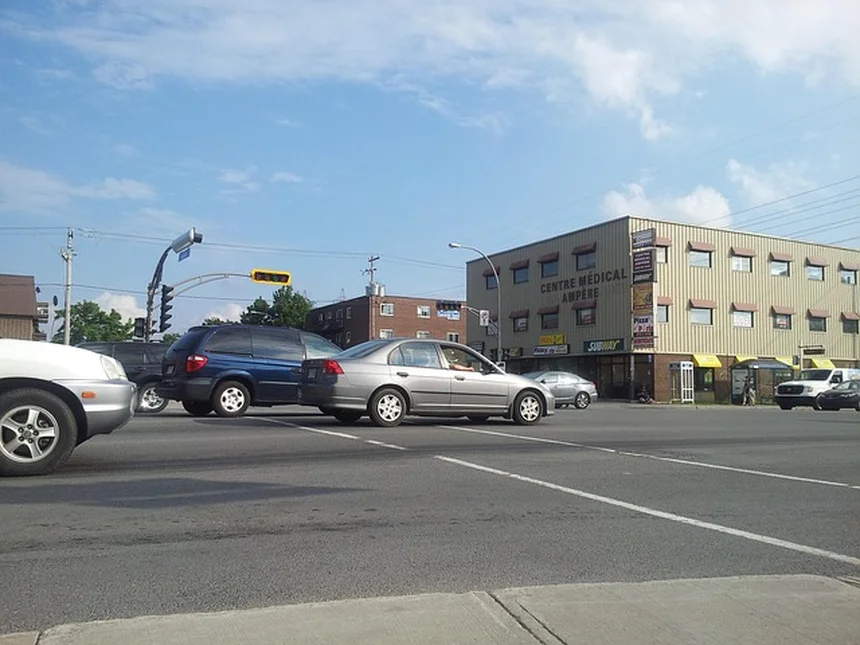Who Gets the Insurance Check When a Car is Totaled? Understand Your Rights and Options
- Apr 18,2025
Wondering who gets the insurance check when a car is totaled? The answer is: it depends on who owns the car! If you own your car outright, congratulations! The insurance check goes directly to you, allowing you to make your own choices about what to do next. However, if you're still financing your vehicle, the lender typically gets the first slice of that check to cover the remaining loan balance. This can get a bit complicated, especially if you owe more than the car's worth. Don’t worry, though—I’ll walk you through the ins and outs of this process so you can be prepared for whatever comes your way. 🚗💰
E.g. :Why Hiring an Attorney for Car Insurance Claims Could Boost Your Settlement by 3-5x
- 1、🚗 Understanding Total Loss: What Does It Mean When a Car is Totaled?
- 2、💰 Who Gets the Insurance Check When Your Car is Totaled?
- 3、🔍 The Insurance Adjuster's Role: Friend or Foe?
- 4、📝 Navigating the Claims Process Like a Pro
- 5、💸 Smart Money Moves After Getting Your Settlement
- 6、🤔 Frequently Asked Questions
- 7、🎯 Final Thoughts: Turning a Bad Situation Around
- 8、FAQs
🚗 Understanding Total Loss: What Does It Mean When a Car is Totaled?
1. The Shocking Truth About Totaled Cars
Picture this: you're driving down the highway when suddenly - BAM! Your beloved car gets wrecked. Now the insurance company says it's "totaled." What does that even mean? Simply put, a car is totaled when repair costs exceed its actual cash value (ACV). But here's the kicker - different insurance companies might calculate this differently. Some use a percentage (like 75% of ACV), while others have their own secret formulas. 🕵️♂️
Let me give you a real-world example. My neighbor's 2015 Honda Civic got rear-ended last month. The repair estimate came to $12,000, but the car's ACV was only $10,500. Boom - totaled! The insurance company would rather pay the car's value than fix it. Makes sense when you think about it, right? Why spend $12,000 to fix a $10,500 car?
2. The Hidden Factors in Total Loss Decisions
You might wonder - is it just about the repair costs versus car value? Not exactly! Insurance adjusters also consider:
- Salvage value (what your wrecked car could sell for)
- State laws (some states have specific total loss thresholds)
- Hidden damage (that bumper might hide more problems)
Here's a fun fact: Did you know that in Alabama, a car is considered totaled if repairs exceed 75% of its value, while in Texas it's 100%? Wild, right? 🤯 This is why it's crucial to understand your state's specific rules when dealing with a potential total loss situation.
💰 Who Gets the Insurance Check When Your Car is Totaled?
 Photos provided by pixabay
Photos provided by pixabay
1. The Simple Case: You Own Your Car Outright
If you've got that sweet, sweet title in your name with no loans attached, congratulations! The insurance check comes straight to you, no strings attached. You can use it to buy a new car, take a vacation (though I wouldn't recommend skipping the car replacement), or whatever you choose.
But wait - here's a pro tip: always negotiate the settlement amount. Insurance companies often lowball the initial offer. I once helped my cousin get an extra $1,500 just by providing recent maintenance records and comparable local sales!
2. The Complicated Reality: When the Bank Owns Your Car
Now let's talk about the more common scenario - you're still making payments. In this case, the lender gets first dibs on that insurance check. Here's how it typically breaks down:
| Loan Balance | Insurance Payout | Who Gets What |
|---|---|---|
| $15,000 | $18,000 | Bank gets $15K, you get $3K |
| $20,000 | $18,000 | Bank gets $18K, you owe $2K |
See that second scenario? That's what we call being "upside down" on your loan. And it sucks. Which brings me to...
3. Gap Insurance: Your Financial Safety Net
"But what if I owe more than my car's worth?" Great question! That's where gap insurance comes in clutch. It covers the, well, gap between what you owe and what the insurance pays. Let me tell you about my friend Sarah:
Sarah's car got totaled last year. She owed $22,000 but the insurance only paid $19,000. Without gap insurance? She'd be writing a $3,000 check. With gap insurance? She walked away clean. Moral of the story? If you're financing a new car, gap insurance is worth every penny.
🔍 The Insurance Adjuster's Role: Friend or Foe?
 Photos provided by pixabay
Photos provided by pixabay
1. The Simple Case: You Own Your Car Outright
Insurance adjusters aren't the bad guys Hollywood makes them out to be (usually). Their job is to determine:
- The extent of damage
- Repair feasibility
- Vehicle's pre-accident condition
- Fair market value
I once shadowed an adjuster for a day, and let me tell you - they look at everything. From the tread on your tires to that coffee stain on the backseat. Why? Because these details affect your car's value. That's why keeping good records pays off (literally).
2. How to Work With (Not Against) Your Adjuster
Want to get the best settlement? Follow these tips:
- Be polite but firm
- Provide documentation (maintenance records, upgrades)
- Find comparable vehicles for sale in your area
- Don't accept the first offer
Remember, adjusters deal with claims all day. The more organized and reasonable you are, the smoother the process will go. And maybe - just maybe - you'll get a better settlement. 😉
1. Immediate Steps After an Accident
First things first - are you okay? Good. Now:
1. Call the police (even for minor accidents)
2. Take photos of everything (cars, license plates, street signs)
3. Get witness contact info
4. Notify your insurance ASAP
Pro tip: Use your phone to record a video walkaround of the damage. It's way easier than trying to remember what photos to take!
 Photos provided by pixabay
Photos provided by pixabay
1. The Simple Case: You Own Your Car Outright
Brace yourself - you're about to become best friends with paperwork. Here's what you'll need:
- Police report
- Medical records (if injured)
- Repair estimates
- Loan documents
- Title and registration
I know, I know - paperwork is the worst. But think of it this way: every document you provide could mean more money in your pocket. That's motivation, right?
💸 Smart Money Moves After Getting Your Settlement
1. Pay Off That Loan First
If you've got a loan balance, resist the urge to splurge. That insurance money isn't free cash - it's meant to make you whole after your loss. Pay off what you owe on the totaled car before even thinking about anything else.
I've seen people blow their settlement on dumb stuff and end up in worse financial shape. Don't be that person. Your future self will thank you.
2. Shopping for Your Next Ride
Now for the fun part - car shopping! But before you get too excited:
- Get pre-approved for financing
- Research prices (Kelly Blue Book is your friend)
- Consider certified pre-owned options
- Don't rush - take test drives
Remember, you're in the driver's seat (pun intended) when it comes to choosing your next car. Make sure it fits both your needs and your budget!
🤔 Frequently Asked Questions
1. "Can I Keep My Totaled Car?"
Sometimes! If the damage isn't too severe, you might be able to buy back the salvage from the insurance company. But beware - you'll get a salvage title, and insurance will be harder to get. Not to mention the safety concerns. Generally? Not worth the headache.
2. "What If I Disagree With the Settlement Offer?"
You've got options:
- Provide additional documentation
- Request a re-evaluation
- Hire an independent appraiser
- Consult an attorney
Most disputes can be resolved with good documentation and persistence. But if you're really getting lowballed, don't be afraid to escalate.
🎯 Final Thoughts: Turning a Bad Situation Around
Getting your car totaled is stressful, no doubt about it. But with the right knowledge and approach, you can navigate the process smoothly and come out okay on the other side. Remember:
- Document everything
- Know your rights
- Don't rush decisions
- Advocate for yourself
At the end of the day, it's just metal and rubber. What matters is that you're safe. The rest? We can figure that out together. Now go forth and conquer that insurance claim! 💪
In wrapping up our discussion on what happens when your car is totaled, it's clear that understanding the process can make a huge difference in your experience. If you've ever wondered, who gets the insurance check when a car is totaled, it really depends on your ownership status. If you own your car outright, the check comes directly to you, allowing you the freedom to make your next move. However, if you're still making payments, your lender will likely get the first slice of that pie, and knowing this can help you plan accordingly. Remember to always negotiate for a better settlement and to consider options like gap insurance to protect yourself financially.
As you navigate this process, think about how every detail matters, from the paperwork you gather to the negotiations you engage in. Whether you're documenting your accident or researching your car's value, being proactive will serve you well. I encourage you to take this knowledge and apply it the next time you're faced with a total loss situation. Have questions or stories to share? Drop them in the comments below – I'd love to hear from you! And don’t forget to follow along for more tips on navigating the often tricky world of insurance and car ownership. 🚗💰
E.g. :How Much Will An Insurance Company Pay For My Totaled Car?
FAQs
1. "What does it mean when my car is declared totaled?"
A car is considered totaled when the repair costs exceed its actual cash value (ACV). Different insurance companies have different thresholds for this determination, often using a percentage of the ACV. For instance, in some places, if the repair costs surpass 75% of the car's value, it may be deemed totaled. It's crucial to check with your insurance provider to understand their specific criteria.
2. "Who gets the insurance payout if my car is totaled?"
If you own your car outright, the insurance check goes directly to you. However, if you still owe money on the car, the lender usually takes the insurance payout to cover the loan balance first. This is a common scenario for many drivers. Always remember to negotiate your settlement amount, as insurance companies often start with a lower offer.
3. "Can I buy back my totaled car?"
Yes, you might be able to buy back your totaled car from the insurance company if the damage is not too severe. However, you will receive a salvage title, which can make it challenging to get insurance later. Additionally, safety concerns are a big factor to consider. In most cases, it’s usually best to let the insurance company handle it and move on without the hassle.
4. "What if I think the settlement offer is too low?"
If you disagree with the settlement offer, you have several options. You can provide additional documentation to support your claim, request a re-evaluation from the insurance company, or even hire an independent appraiser to assess your car's value. If things still don’t resolve, consulting an attorney specializing in insurance claims might be necessary. Persistence and good documentation are key!
5. "What should I do immediately after an accident?"
After an accident, your first priority should be your safety. Once you're safe, call the police, take photos of the scene, get witness information, and notify your insurance company as soon as possible. A useful tip is to record a video walkaround of the damage to streamline the claims process. This documentation can significantly help when filing a claim and negotiating with your insurance provider.
